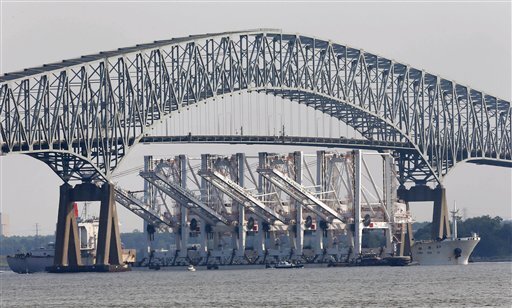In the coming months, any remaining toll booths in Maryland will be coming down as the state gets ready to go entirely cashless.
But though drivers without an E-ZPass will be able to go through as quickly as those with, they still face obstacles, which a bill in the Maryland General Assembly seeks to address.
Currently, if you travel the Intercounty Connector or pass through any other Maryland toll road without an E-ZPass, the state takes a picture of your license plate and mails a bill for the toll to the address the plate is registered to. If the bill isn’t paid within 30 days, a $50 civil penalty gets tacked on, even if the toll is just a couple of dollars.
Later this year, that penalty is getting trimmed to $25 for those with no more than five late transactions, but a Montgomery County delegate says that is still too much to be fair or effective.
Democratic Del. Al Carr wants to cap the late fee for all unpaid tolls at $5.
“It’s a failed policy,” Carr said about the penalty. “It harms a lot of Marylanders. The excuse that’s used for that is that it’s an enforcement technique to get people to pay up. But it’s not very effective. Unfortunately, it’s clogging the courts.”
Carr said he wants the fee lowered, and he wants the state to stop suspending a vehicle’s registration because of unpaid tolls, though he supports making registration renewal contingent with paying off any outstanding fines.
He also wants the state to reach reciprocity agreements with D.C. and Virginia, to force their drivers to pay up.
Carr modeled his idea on the system in Massachusetts, which has already gone totally electronic for tolling.
“Massachusetts has the best performance in the industry in terms of being able to collect the tolls that are due, and they do it without these punitive, predatory late fees,” said Carr.
Carr expected to get some pushback from other leaders in Annapolis.
“It’s been a moneymaker for (the state of Maryland),” said Carr. “The amount of revenue that they’ve collected through these late fees in fiscal year 2017 was $42 million, and was about $30 million in 2018 and 2019. It’s a money grab, which is why they’re reluctant to give it up.”
And with cashless tolling coming, Carr is certain “that number is only going to increase.”
“Another problem is that it’s clogging our court system,” Carr added. “A lot of people get these late fees and there’s a box you can check off to contest it in court. A lot of people are so angry, and they don’t feel these $50 late fees are fair, and so they check that box. There are tens of thousands of cases clogging our court system for people disputing late fees.”
A spokesman for Maryland Gov. Larry Hogan said it’s too early to say whether the administration will back the idea.
“The administration is in the process of evaluating the legislation’s impact on customers, vendors, the implementation of the new 3G tolling system contract, and the Video Toll collection process,” said Michael Ricci, a spokesman for Hogan.
The bill has been introduced in the House of Delegates; a hearing is scheduled for Jan. 30.







